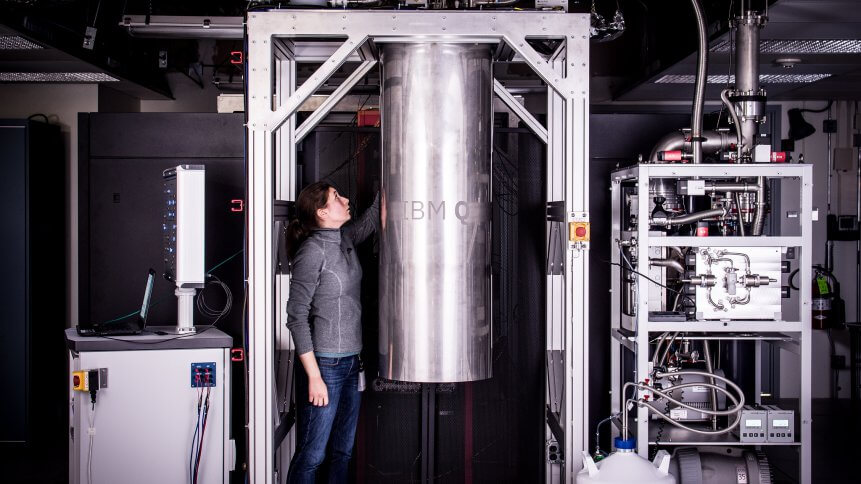How quantum computing could help find a COVID-19 cure

Scientific researchers are hard at work around the planet, feverishly crunching data using the world’s most powerful supercomputers in the hopes of a speedier breakthrough in finding a vaccine for the novel coronavirus.
Researchers at Penn State University think that they have hit upon a solution that could greatly accelerate the process of discovering a COVID-19 treatment, employing an innovative hybrid branch of research known as quantum machine learning.
When it comes to a computer science-driven approach to identifying a cure, most methodologies harness machine learning to screen different compounds one at a time to see if they might bond with the virus’ main protease, or protein.
This process is arduous and time-consuming, despite the fact that the most powerful computers were actually condensing years (maybe decades) of drug testing into less than two years’ time. “Discovering any new drug that can cure a disease is like finding a needle in a haystack,” said lead researcher Swaroop Ghosh, the Joseph R. and Janice M. Monkowski Career Development Assistant Professor of Electrical Engineering and Computer Science and Engineering at Penn State.
It is also incredibly expensive. Ghosh says the current pipeline for discovering new drugs can take between five and ten years from the concept stage to being released to the market, and could cost billions in the process.
“High-performance computing such as supercomputers and artificial intelligence (AI) can help accelerate this process by screening billions of chemical compounds quickly to find relevant drug candidates,” he elaborated.
“This approach works when enough chemical compounds are available in the pipeline, but unfortunately this is not true for COVID-19. This project will explore quantum machine learning to unlock new capabilities in drug discovery by generating complex compounds quickly.”
Quantum machine learning is an emerging field that combines elements of machine learning with quantum physics. Ghosh and his doctoral students had in the past developed a toolset for solving a specific set of problems known as combinatorial optimization problems, using quantum computing.
Drug discovery computation aligns with combinatorial optimization problems, allowing the researchers to tap the same toolset in the hopes of speeding up the process of discovering a cure, in a more cost-effective fashion.
“Artificial intelligence for drug discovery is a very new area,” Ghosh said. “The biggest challenge is finding an unknown solution to the problem by using technologies that are still evolving — that is, quantum computing and quantum machine learning. We are excited about the prospects of quantum computing in addressing a current critical issue and contributing our bit in resolving this grave challenge.”








